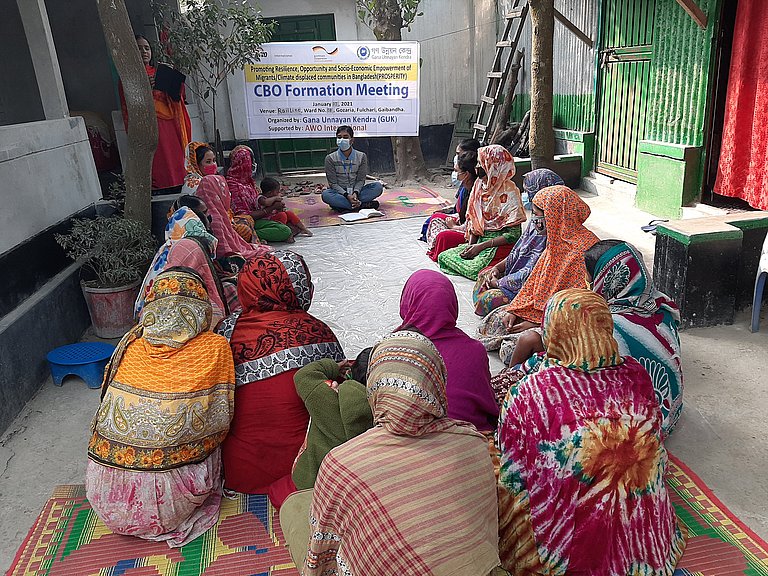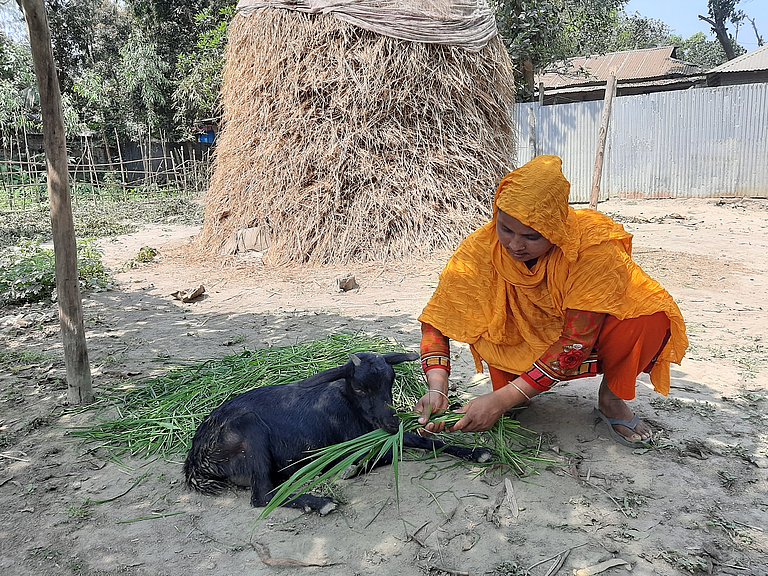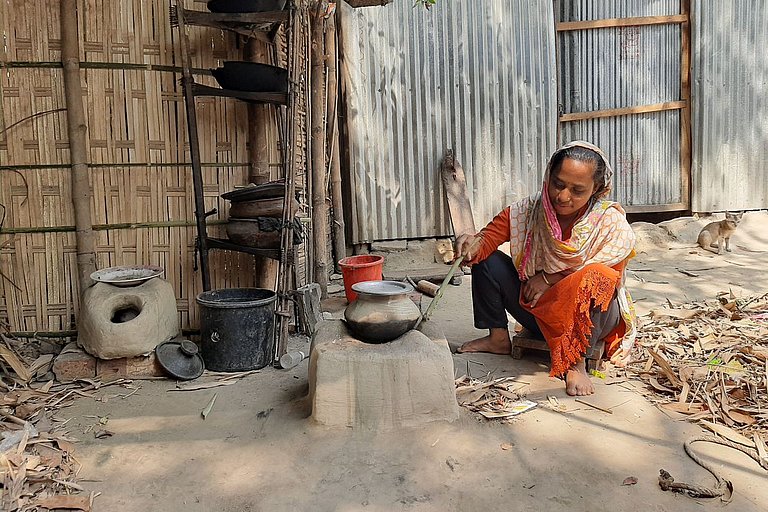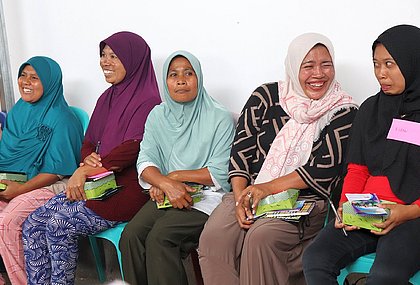Bangladesh is one of the countries most severely affected by labor migration globally. Every year, around 400-500,000 people leave the country to work abroad, the International Labor Organization says. One of the reasons for this is the impact of climate change, which is clearly noticeable in many parts of the country: Every year, Bangladesh experiences major floods, cyclones and riverbank erosion. As a result, more and more people are also being displaced from their home villages.
Working with GUK

We run our project in Bangladesh in cooperation with our local partner organisation GUK. The project focuses on the Gaibandha district in northern Bangladesh - one of the poorest and one of the most vulnerable regions of the country in terms of food insecurity. Gaibandha is surrounded by three major rivers. It is the setting for many river islands, which are particularly vulnerable to the effects of climate change: Annually, there is a large loss of livestock, seeds, crop yields, and habitable land here due to massive flooding.
In our project in Gaibandha, people are trained in all aspects of a safe migration process. The aim here is both to explain the risks of leaving the country and to inform the migrants about a safe migration process. This means, among other things, that the migrants know how to register with the migration authorities and that they have information about their employer and an appropriate employment contract. In addition, the inhabitants of the river islands are educated on how they can better prepare and protect themselves against floods and cyclones, in order to prevent them from becoming climate refugees. As the project proceeds, a total of four "cluster" villages will be built to provide climate-displaced families in the riverine areas with a new, safe living space with sanitation facilities and clean drinking water.
Community-based organizations as a special component of the project

As part of the project activities, a total of 54 community-based organizations will be established, each consisting of approximately 20 members. Their members consist of migrants, returnees and internally displaced persons. With the support of the project team, the members meet regularly to discuss problems and challenges in the communities. The selected leaders of the community-based organizations are empowered to sensitize government officials to the rights and demands of the residents and to provide appropriate services. In addition, the leaders of the groups will support their members in obtaining access to services from official migration authorities and legal counsel. The groups will also implement food banks where members will store rice on a monthly basis. Some of the stored rice will be sold and the proceeds deposited into the groups' respective bank accounts. In emergency situations, for example after a flood, this will serve as a reserve to which the members will then have access. In order to show people an alternative to migration, training is also offered in income-generating activities, for example in livestock breeding and agriculture.
Projectinfo
| Project | Promoting resilience, opportunity and socio-economic empowerment of migrant/climate displaced communities (PROSPERITY) in Bangladesh |
|---|---|
| Place/Region | Satkhira Distrikt, Asasuni, Bangladesch |
| Partner | Gana Unnayan Kendra (GUK) |
| Target group | 1.500 families (around 6.750 people). In addition to a focus on women, people with special needs such as children, the elderly, and people with disabilities are given priority in selection and distribution. |
| Activities |
|
| Duration | 2020 - 2025 |
| Budget | 52.900 Euro per annum |
| Sponsor | BMZ (Federal Ministry for Economic Cooperation and Development) |

![[Translate to Englisch:] Um Alternativen zu schaffen und Einkommensquellen zu kreieren, lernen die Migrant*innen die Produktion eigener Produkte (Foto: Carlos Cano/ AWO International) [Translate to Englisch:] Um Alternativen zu schaffen und Einkommensquellen zu kreieren, lernen die Migrant*innen die Produktion eigener Produkte (Foto: Carlos Cano/ AWO International)](/fileadmin/_processed_/3/f/csm_Carlos_Cano_x_ECAP_1280x800_897135c5c1.jpg)
![[Translate to Englisch:] Gemeinsam mit unseren Partnerorganisationen setzen wir uns für eine sichere Migration und gegen Menschenhandel ein. (Foto: AWO International) Together with our partner organisations, we promote safe migration and combat human trafficking. (Picture: AWO International)](/fileadmin/_processed_/f/b/csm_Rights_Jessore_DSC_0076_a1ba7cec1d.jpg)
